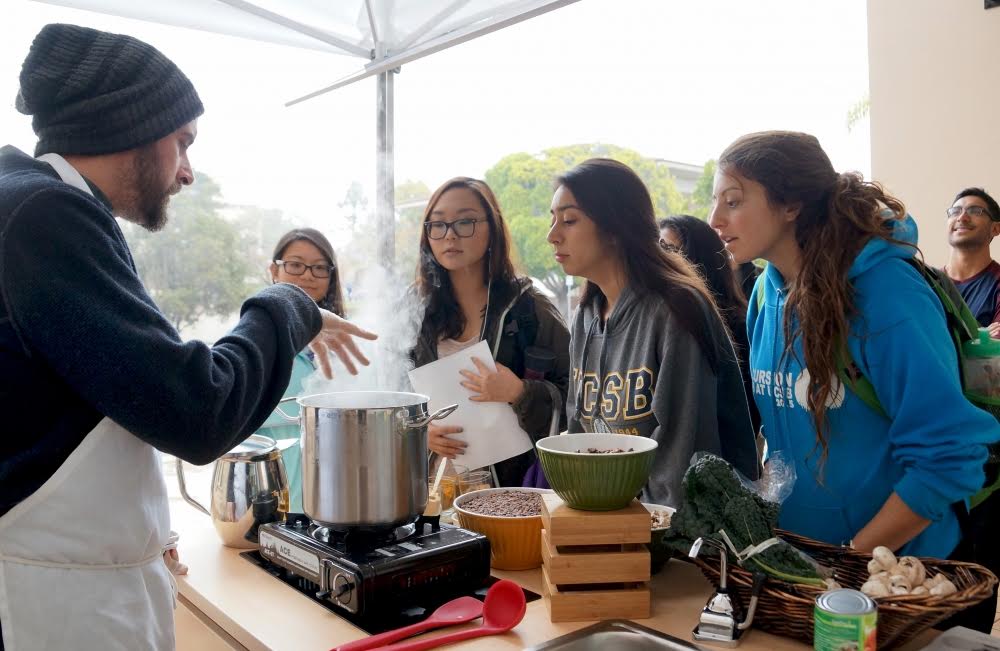Undergrads Supplement UCSB Quarter with Food Classes
Life Skills Program Teaches Cooking, Planning, and Buying

With 8 billion people expected to be living on the Earth by 2025, the UC system has embarked on a research, outreach, and operations quest to find ways to nutritiously and sustainably feed everyone. A group at UCSB has taken that mandate, and a $35,000 grant, to encourage students — through workshops on hands-on cooking, planning, and buying — to understand how the foods they choose relate to the world at large.
“From balancing whether to buy organic or not (acknowledging that there are often differences in price), to having people think about how workers are treated at a place that sells a hamburger for a dollar, the Food, Nutrition and Basic Skills Program strives to teach people about their place in our community,” said John Lazarus, assistant director of University Center Dining.
For most, the classes teach them how to shop and how to cook, but diet also becomes an underlying topic when snacking, using leftovers, making soups, and nutrition enter the conversation. Couple that with Isla Vista Food Co-op tours on how to live on $48.50 per week — the federal food stamp budget for individuals — through bulk buying with roommates and learning about seasonal foods Mom didn’t cook, and students also begin to work out budgeting and finance. Buying local and staying healthy round out the quarter-long series.
For spring quarter, the program will be addressing such topics as what to eat when midterms and finals are on and undergrads are too stressed to think about anything but Red Bull and Slim Jims. Setting aside time to plan and cook is part of that, said Tuyen Nguyen, coordinator for the Associated Students Food Bank. She explained that next quarter’s classes will be advancing to vegan cooking and tours to area farms to give UCSB students a better understanding of just where their food comes from.
For about 2,500 students, some of it comes from the A.S. Food Bank, which received a $40,000 grant from the UC to continue its program of offering one-stop shopping for confidential financial assistance, referrals, food, and toiletries. The food bank, supported also by student fees and donations, has seen an increasing volume of students since it opened during an economic crisis among students during 2010-2011, largely regarded as triggered by escalating university tuition fees. There were 50,000 visits to the food bank last year.


